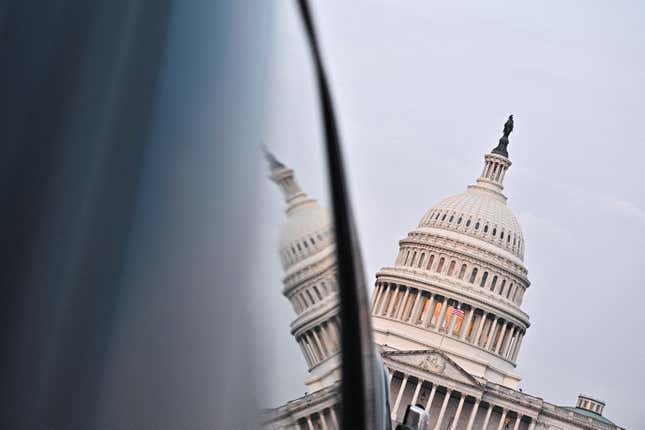
More than halfway through his term, US president Joe Biden had yet to use his veto power. But that changed after the US Senate voted earlier in March to block a US Labor Department rule that would have allowed retirement plans to consider environmental, social, and governance (ESG) factors in their investments.
Biden issued the veto against the measure on March 20. “This bill would risk your retirement savings by making it illegal to consider risk factors MAGA House Republicans don’t like,” the president said, explaining his decision.
ESG principles call for broadening investment considerations beyond profit to incorporate a loosely defined set of issues that can include climate risk preparedness or a company’s working conditions or employee compensation.
Democrats argued that the Labor Department rule was neutral: Retirement funds could either choose to invest in ESG funds, or not. But Republican opponents have turned ESG into a political lightening rod, deriding it as a form of “woke” capitalism at odds with the needs of average Americans.
US pension funds manage over $20 trillion dollars (pdf) in assets and retirement savings, according to the OECD.
Democratic US senators Joe Manchin of West Virginia and Jon Tester of Montana joined all of the Senate’s Republicans in voting against the Labor Department rule, setting Biden up for the first veto of his presidency.
The House and Senate are not expected to have the required two-thirds vote to overturn a presidential veto.
ESG is a culture war battleground with high financial stakes
In a statement, Tester justified his anti-ESG vote in the Senate saying, “I’m opposing this Biden administration rule because I believe it undermines retirement accounts for working Montanans and is wrong for my state.”
Manchin went several steps further. In a brief interview on Fox News, he said that “ESGs by itself just could kill our whole economy.”
Manchin and Tester both represent states with large fossil fuel industries, which are concerned about divestment should funds move toward climate goals.
ESG assets have grown rapidly in recent years, to over $18 trillion in 2021.
Financially, ESG funds perform similarly to non-ESG funds, though major asset managers are starting to warn that Republican-driven acrimony toward ESG may begin to threaten performance.
This article and its headline were updated on March 21 to reflect news of Biden’s veto against the bill.